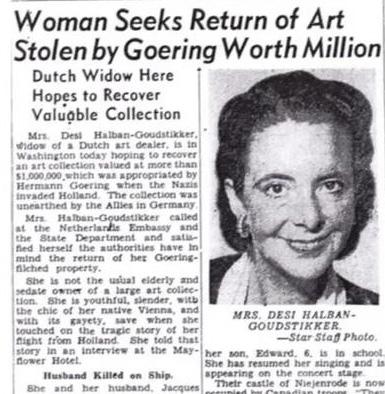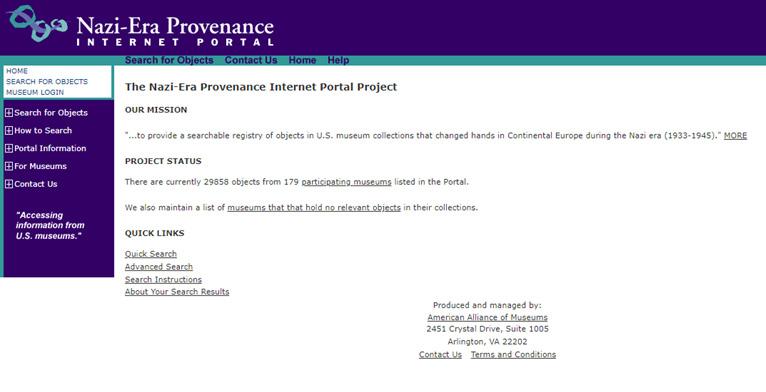
4 minute read
“I Will Cook So We Can Live”
In Orchot Tzaddikim, “Ways of the Righteous,” in English — a 15th century German book on Jewish ethics, it is written: “The wise man says: I will eat to live, and the fool says: I will live to eat.” While perhaps true on a certain level, these words have never really deterred me, an enthusiastic foodie from seeking out the next amazing restaurant.
But time passes, people change and in the last few months, I have found that these words have given me pause to consider the relationship between my beloved former mother-in-law, Bertha and her beloved Uncle Max. Bertha is a Holocaust survivor. From Karlsruhe Germany, she, her brother, and parents were deported in 1940 to internment camps in the south of France. Bertha was 4 years of age and her brother Leo, 2. During the summer of 1942 the children were rescued by the OSE (Oeuvre De Secours Aux Enfants) and in September 1942 both parents were put on a transport to Auschwitz where they were immediately gassed.
On May 8, 1946, the children, and a group of other Jewish children who had lost their parents in the Holocaust arrived in New York by ship from Le Havre, France. Recha Reutlinger, their aunt — their Tanta became their legal guardian.
Uncle Max and Tante Hilde Fechenbach were deported in September of 1942 from Wurzburg, Germany to the Theresienstadt Concentration Camp with their children Walter (14 years) and Susanne (9 years). As if by a miracle, they survived in Theresienstadt for almost 3 years, although so many other prisoners perished.
So, how did Uncle Max and his family survive? Max was a chef. At the time of his deportation, he was working as a cook in a senior center — a nursing home of sorts. He was also a handicapped German Army vet, having lost a leg in WW1. Upon arrival at Theresienstadt, the SS aware of his occupation whisked him away to be named the camp chef for the Nazi soldiers.
After the war was over, like many German refugees before them, Washington Heights in Upper Manhattan in New York City became home for Bertha and Leo as well as for Max and his family. The families were close, and Max became a father figure for both Bertha and Leo. Max was also able to continue working in his profession, the same job that saved his family from extermination in the camps. Max’s position as chef at the Beth Jacob Home for the Elderly in the Bronx, supported the family for many years. It also honed his cooking skills. He would regularly prepare exquisite German dishes for the entire family. What he didn’t realize was how much his young, orphaned niece, Bertha was observing him.
She watched, absorbed, and inhaled — his soups, his sauces, his roux, his chicken, and liver dishes, spatzle, beef rouladen, and more. Even how he used his knives did not go unnoticed by the young gastronome. Bertha learned about food preparation, meal timing, presentation, and proper usage of plates, cutlery, and myriads of food gadgets. She assisted him in making traditional Passover dishes, food for the synagogue and regular evening meals for the family. Bertha was present when Max prepared the platters for her brother Leo’s Bar Mitzvah. And Max was there for her, to walk her down the aisle in her father’s stead when she married her husband Walter Strauss in 1957. Bertha, widowed for a few years, is now 86 years
old. She has 2 children and 4 grandchildren. Her gourmet talents are well known, appreciated, and devoured by her family, her synagogue — Hillcrest Jewish Center, Queens Region of Hadassah, and friends and family in Israel and around the world. Her cooking has changed over the years. Influenced by Kashrut laws, Bon Appetit, Gourmet Magazine, and numerous celebrity chefs. Even in 2022, a seat at Bertha Strauss’ Passover Seder table is a hard ticket to come by. However, an extra chair will always be found, as there is always RISA STRAUSS room for one more. Uncle Max passed in 1976, but the impact he had on his nieces’ life was considerable. What might their relationship have been had they not been living so closely together in the post WW2 refugee neighborhood. Was Uncle Max’s mantra, “I will cook so we can live,” and “We live because I cook”? I can only imagine the horror of feeding and preparing foods for Nazis while his family and the other prisoners ate rotten turnips. But with each morsel of food he made, he was able to bide his family a few more moments of precious life. Those horrible experiences suffered, became a nurturing force in Bertha’s young life. Writer, Abraham Avrunin wrote, “Eating is the best of prayers.” Bertha Strauss lived her post-Holocaust life by those words. Though starved as a little girl, Bertha turned that hunger into a fulfilling and creative artistic endeavor. Embracing Jewish traditions, and religious practices she shared her culinary creations with all those around her. By connecting the goodness of her past, and family roots with her present, Bertha was able to provide a wonderfully delicious future for her family. ■
Bertha and her brother Leo at his Bar Mitzvah, 1950.

Bertha walking down the aisle at her wedding with Uncle Max and her Tanta Recha on Feb. 16, 1957. Risa Strauss is the Beth Shalom Religious School Director, USC Hebrew Instructor, and 2019 Covenant Award Winner.











